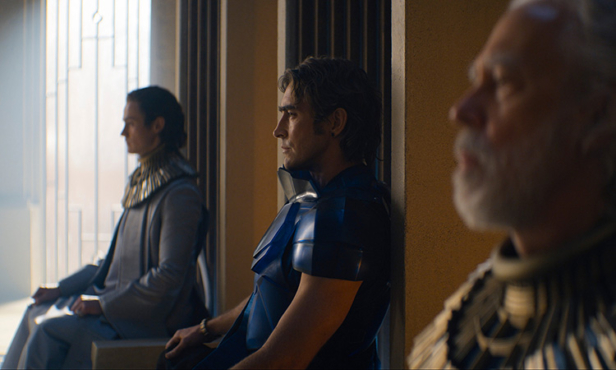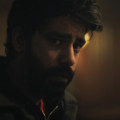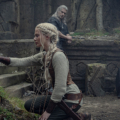“How do you tell a story about the fall of human civilization where it spreads to 10,000 worlds and it’s going to span 1000 years?” asks David Goyer, showrunner of Foundation – a show based on a series of books by Isaac Asimov that scopes exactly that.
The reason we’re musing over that question is because Goyer did what has always been thought of as impossible – he successfully adapted Asimov’s seminal works in the form of a TV series for Apple TV+ back in September, and now he’s back for season two.
But seriously, how did he do it?
“I think the secret to that, and it’s why I’m so excited about season two and why I think we’ve improved upon season one, is by making the themes as accessible and universal as humanly possible,” Goyer says. “It’s one thing to have grand ideas about the future of civilization, but it doesn’t matter if you don’t actually care about who lives and who dies.
“So something that we were very cognizant of when we were adapting the show was making sure that this would appeal to people who haven’t read Asimov, who don’t consider themselves to be fans of science fiction, just making sure that the characters are vivid and that we care about their fates.”
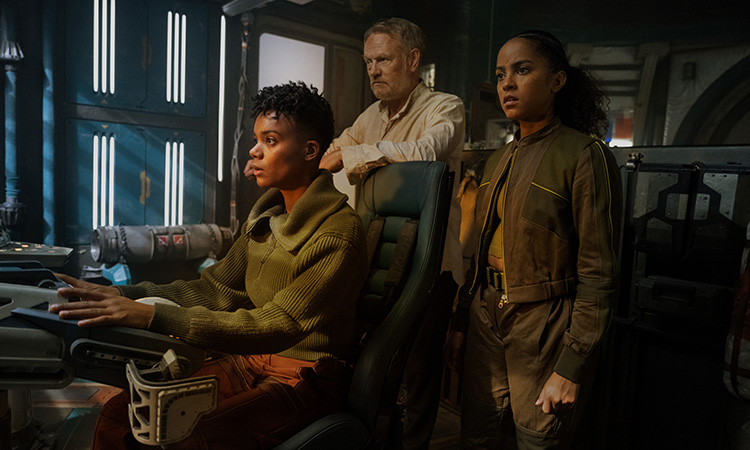
Indeed, we do care about the fates of our characters, especially after the jaw-dropping ending to season one, which saw Gaal (Lou Llobell) wake up over 100 years in the future on her home planet of Synnax, only to find out that the daughter she never knew existed, Salvor (Leah Harvey), was there too – and she’s physically older in age than Gaal is. With both ships crashed, are they stranded? And how will their strange new relationship work?
Meanwhile, Hari Seldon, the creator of psycho-history (and pretty much the reason this whole thing started), has been split in two, with one being exploded after Gaal abandoned her ship to return to Synnax and the other trapped in a Vault.
We also found out the purity of the great genetic dynasty of the Emperor Cleon had been sullied – what does that mean for Brothers Dawn, Day and Dusk?
Well, as we enter season two of Foundation, that means a great deal: Brother Day is planning on ending the genetic dynasty by getting married and starting a dynasty of his own.
Lee Pace plays the latest incarnation of Brother Day (and, indeed, all the incarnations of Brother Day) with Cleon the 18th in Season Two. In fact, Cleon 18 is a character that’s never really delved into in Asimov’s books. “My character doesn’t exist in the novels,” Pace says. “Well, he does exist, he’s referenced, but that’s part of what David [Goyer] has added and elaborated upon on the Asimov novels.”
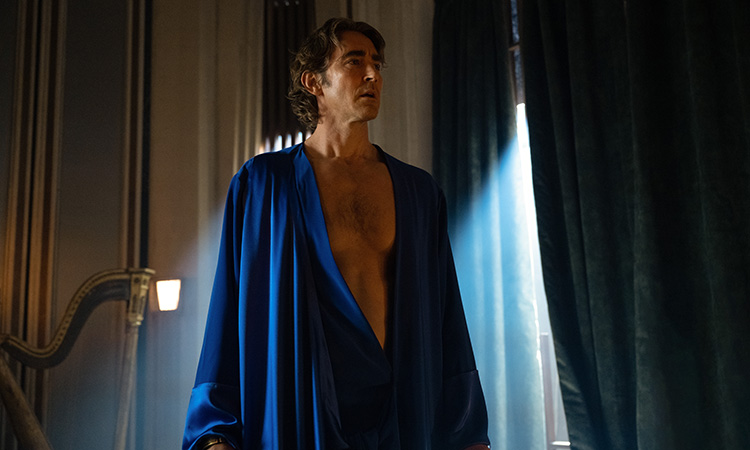
Season One wasn’t a great time for Emperor; his great Starbridge on his home planet of Trantor was destroyed by terrorists, Hari’s psycho-history predicted the end of him and his dynasty, his genetics had been altered and he was forced to take part in a ritualistic spiral walk to prove his right as ruler.
“In the last season, the character received a very strong message at the end of the spiral, that he’s just a human, like everyone else,” Pace continues. “He’s not a God, he is a human and he’s got the weight of the galaxy on his shoulders. He’s not a part of this dynasty of cloned Emperor Gods. He’s just a man. And the rest of it is a fantasy.
“So that vulnerability, I think, is like a seed that was planted in that first season. Now over a century later, it’s grown into a great big tree, and inside Cleon the 18th is a real panic that it’s all going to fall apart on his watch.”
Pace isn’t the only actor on the show to play multiple versions of the same character. Season One of Foundation saw Hary Seldon, the human, die and his consciousness be split into the Vault on Terminus and as part of a ship awaiting the arrival of Raych Foss (Alfred Enoch). Though the ship version of Hari gets destroyed, we will see two versions of Hari Seldon in Season Two.
“There are two versions of the character,” Harris nods. “One of them takes the more personal journey. We discover him right at the beginning of episode one [of Season Two]. He’s been trapped in a pretty hellish situation for 130 years and he’s fairly psychologically damaged from the result of it.
“Then the other version is the Hari that we met, that came out of the vault, and he’s in slightly better shape. Things look like they’re going according to plan.”
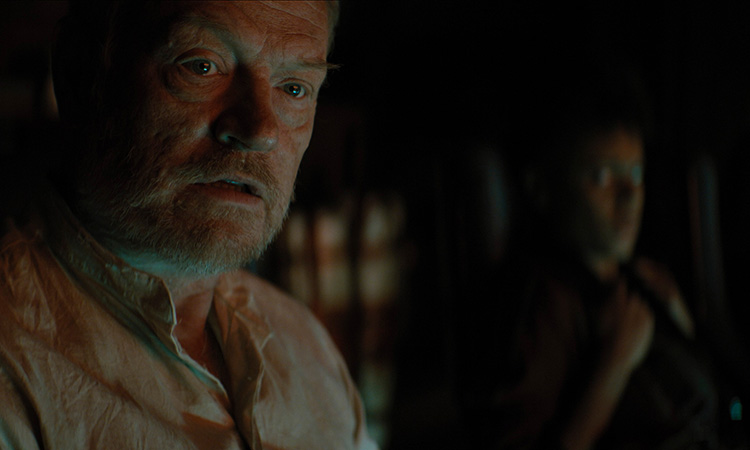
Something that isn’t going according to plan is the original Cleon’s aim of keeping his clones as Emporer until the end of time.
We begin Season Two with the announcement of Cleon’s marriage to Queen Sareth (Ella-Rae Smith), who is another character not in Asimov’s books but is a way for Cleon to deal with the impurity of his genetics, and a way to carry on his dynasty.
Just his actual dynasty, mind you, not the original Cleon’s…
“He is planning to marry so he can end the genetic dynasty,” Pace affirms. “He believes he’s the biggest, the strongest, one of the greatest of the Cleons. As there was the first Cleon, he’s going to be the last Cleon. That’s his solution for Hari Seldon’s prophecy that this genetic dynasty will run it all into the ground.
“Now, he’s not marrying for love. He’s marrying for political purposes. The person he loves is Demerzel, who is this robot super intelligence that has raised him and all of his brothers. I think he feels that she’s his soulmate, that she’s the only person that matters or exists in the galaxy. So it creates a contradiction. But that’s part of the messy riddles that make Foundation work.”
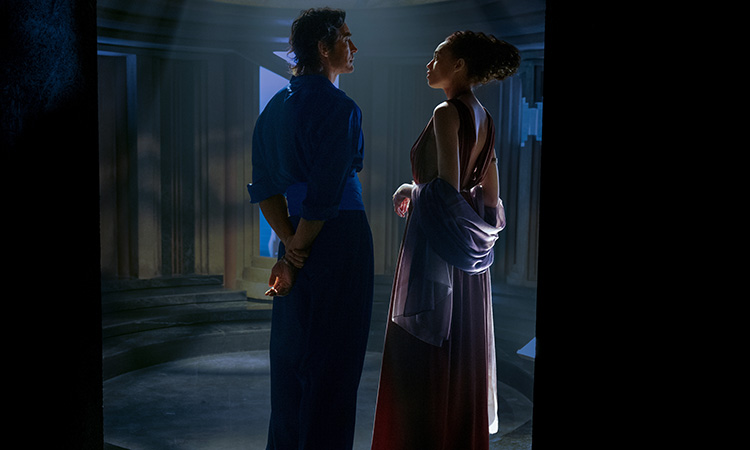
Speaking of Demerzel, Season Two will give audiences a little more insight into the incredibly complex character, and Laura Birn, who plays her, loves that she’s a mystery. “She’s written to be this enigma that you start to understand little by little,” she says. “I remember David [Goyer] saying to me in the beginning that this is a slow burn character, but I learned to be patient because in season two, we get to explore interesting sides of her…”
Playing an AI robot that’s lived for thousands of years means adding a few physical elements to the character, but it’s another part of Demerzel that Birn: “The physicality I love, I think it resonates with the thing that she holds everything inside. She’s lived for 25,000 years, she’s seen everything. She’s seen humanity go through a lot of things – the most evil and horrible of it all and the most beautiful, and she has all that knowledge inside her, she doesn’t forget anything.
“So she holds herself together, all that information, all that she ever saw. Then there’s also the beautiful costumes, my season one costumes also defined the structure and the posture, and then we get to reveal the story of the posture later in Season Two.”
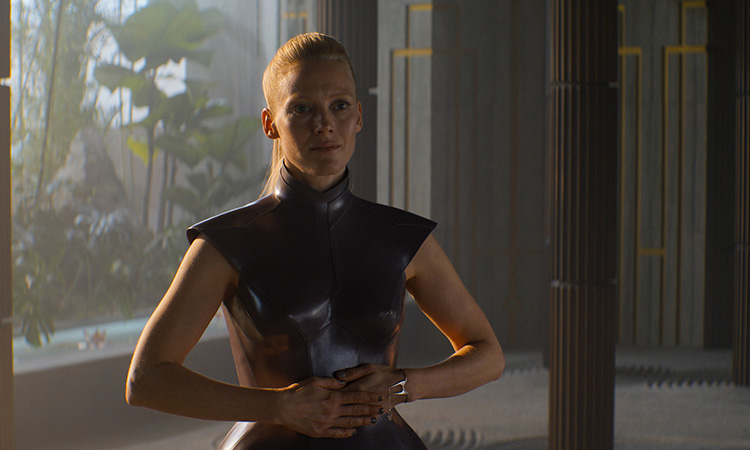
AI robots, genetic alteration, space travel, multiple planets… Foundation is certainly a high-concept sci-fi, but surprisingly enough, for Goyer in adapting the novels, he didn’t want to rely on those famous science-fiction themes and instead focused on what everyone can relate to. “Every time we come up with a story strand I try to say ‘well would this story work if you removed all the science fiction tropes?’ If it doesn’t, then I’ll kick it back to my fellow writers.
“The tropes are amazing, and they’re fun, but it’s got to work without the science fiction. It’s got to work without the spaceships and the various alien flora and fauna. The themes are amazing and highbrow, but it doesn’t matter if we don’t care about the characters and their interior lives. It doesn’t matter if we don’t care who lives and who dies and who’s going to fall in love and who won’t.
“That’s something that Asimov’s first book was a little thin on,” Goyer continues. “It was much more so a book about ideas, rather than characters. Light certainly on characters and their backstories, and strengths and weaknesses, at least until you get to the second half of the second book. But TV is about that, and so that’s something that we felt we really had to flesh out.”
Goyer tells us that TV series like Stranger Things and Game Of Thrones really paved the way for a show like Foundation to be created. “I think they taught audiences that they could really dig into novelistic shows; shows that grow over years and take a slower pace,” he says. “It’s actually a preferred medium for me. For me, there’s nothing better than returning to a show that just keeps building and building. I love to really sink my teeth into something that’s going to run for 10 episodes and hopefully will run for three or four or five seasons. So long as there’s a plan and they’re not just winging it.…”
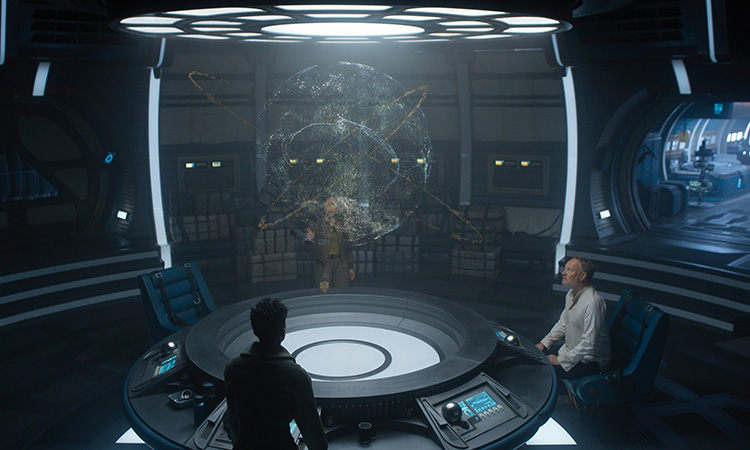
Speaking of which, with six Foundation novels from Asimov to play with, Goyer knows a way to stop the show from going too wayward or off pace – he writes the season endings first.
“It’s a trick that I picked up from James Cameron,” he nods. “He likes to come up with a really crazy idea and then write towards that. So I like to say to my fellow writers ‘what’s something that would seem to absolutely break the story?’ Something just wild like the dissolution of the genetic dynasty at the end of the first season. And we’ve done a few things like that at the end of season two of Foundation.”
With wild endings and new characters, Goyer has certainly strayed from Asimov’s original works, but as a fan, he’s making sure the divergences still stay true to the writer’s works. Plus he has a family member on board to make sure things don’t go too far off the Asimov track…
“I’m a fan and so it’s important to make sure that we’re not betraying the DNA of the source material, in this case, Asimov’s writing,” he says. “Before he died, [Asimov] was asked about Foundation being adapted and he imagined that much would have to be changed because it was a different medium. His daughter Robin is an executive producer on the show. So the closest I can get to Isaac Asimov is by bouncing ideas off his daughter and she has said many times that she felt her father would have approved of the various changes and adaptations that we’ve made.
“We had to run all of those things past her. So I trust that she has a good sense as the keeper of the Foundation lore.”
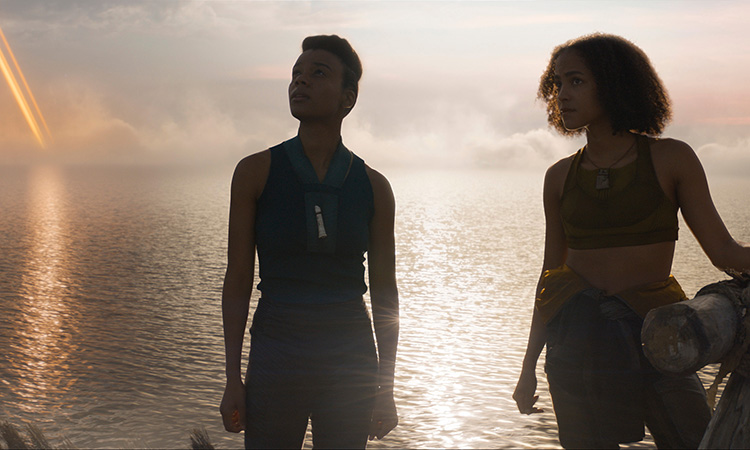
Asimov wrote Foundation during the forties, and with corrupt governments, power-hungry leaders, and the feeling of inevitability of the end of civilisation as we know it, the novels certainly reflect the war-torn era.
Though the show is being made over 80 years later, a lot of the themes are still relevant. “Sadly Asimov’s whole premise of psycho-history is that humanity tends to be cyclical in its process,” says Goyer. “When we were preparing for Season One, the world dealt with a global pandemic. In the wake of World War I we never imagined that we would be dealing with a pandemic like that again, but here we were.
“He was writing in a post-World War II environment, a kind of Cold War environment and yet here we are again, with different forces challenging NATO and the old order, being upset and realigning itself. So everything old is new again, and I would argue that Foundation, this show, is even more relevant today than it was when Asimov wrote it, and when our first season came out.”
Asimov sure knew what made good science fiction. And isn’t great science-fiction something that holds up a mirror to society but does so in a digestible way…?
“Science fiction works best when it works as an allegory,” Goyer says. “I think people don’t like to feel that they’re being preached to. But when you do show like Foundation, you can talk about all of the issues that are affecting society today, but approach them in a sideways way. I think it’s important to entertain people first and to not stand on a soapbox.
“If you’re not entertaining people, then whatever message you’re trying to get across is just going to become completely lost.”
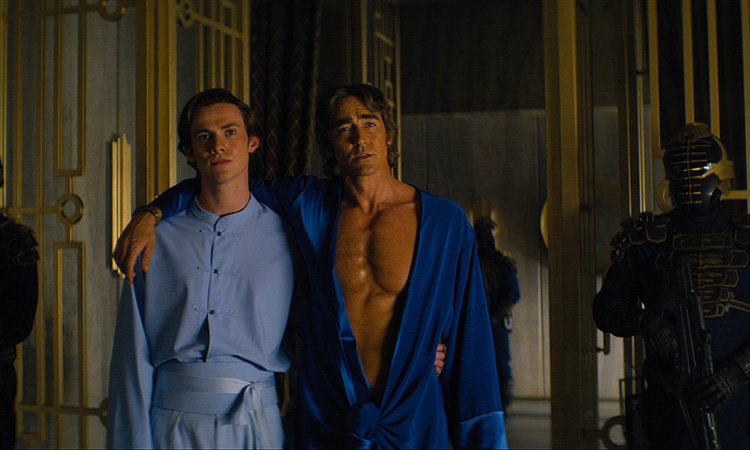
Yes, this isn’t all doom and gloom. It’s about entertainment. In fact, now that Season One has completed laying the groundwork for introducing the characters and world(s), Season Two can really lean into the fun part.
“They did all the heavy lifting last season in terms of the world-building and explaining the broad outline of the show,” says Harris.”I think this one is a little bit set free from those responsibilities. So it’s a little bit more of an adventure.”
For Goyer, that fun lies in keeping the audience guessing. That though Foundation’s structure, characters and themes are incredibly broad, everything still ties in together in the end. And he’s even more excited to see how audiences will react to those little story strands that seem so far away from each other will come back together for Season Two.
“I think that’s part of the fun,” Goyer nods. “I think audiences were wondering how in the hell we were going to pull it off in season one and how all of these strands were going to connect, and I think most of them were delighted in the way that we did pull it off.
“There’s something that happens at the end of the second episode in Season Two, where a name appears on the vault. [But] psycho-history is meant to predict the broad movements of society, not individuals. So why would the vault come up with an actual name of a human? It seems to break one of the central tenants that we set up in season one, but hopefully by the end of the season, the audience will understand that and it will be surprising to them.”
Foundation Season Two is out now on Apple TV+. Read our review here.
